





At AvenueDogs.com, we care about your pet. That’s why we’ve had our resident veterinarian create a comprehensive review of potentially helpful medications. Today, we will be reviewing Cosequin for dogs.
This guide will help you decipher some important Cosequin ingredients, explore Cosequin reviews, and answer the big question of is Cosequin good for dogs. So, without further ado, let’s get started!
(Keep in mind: Avenue Dogs is reader-supported. When you buy through links on our site, we may earn an affiliate commission (with no additional cost to you)).
If you’d rather listen to this blog, just click play on the YouTube video below:






Top 10 FAQs for Cosequin for Dogs
We’ve compiled a list of some of the most common questions she gets as a vet about Cosequin for dogs. If you need more information or have further questions about how you can use Cosequin for dogs, leave a comment below and I’ll get back to you as soon as possible. But remember, if there’s an emergency, stop all use of any medications and contact your vet immediately.



If you’d like to know more about home medications that can help your pet, check out our vet-approved list below:
| Dyne for Dogs: For Energy & Weight Gain | Omeprazole for Dogs: For Ulcers & Inflammation | Enrofloxacin for Dogs: For Bacterial Infections |
Cefpodoxime for Dogs: For Bacterial Infections | Sucralfate for Dogs: Chronic Upset Stomach | Cosequin for Dogs: For Joint Health |
| Ursodiol for Dogs: For Liver & Gallbladder | Trazodone for Dogs: For Anxiety & Aggression | Mometamax for Dogs: For Ear Infections |
| Credelio for Dogs: For Ticks & Fleas | Chlorpheniramine for Dogs: For Allergy-Related Conditions | Butorphanol for Dogs: For Painful Coughs |
| Dinovite for Dogs: For Irritating, Itchy Coat | Dasuquin for Dogs: For Joint Health | Meloxidyl for Dogs: For Pain & Inflammation |
| Glandex for Dogs: For Digestive Support | Rilexine for Dogs: For Bacterial Infections | Enalapril for Dogs: For Cardiac Conditions |
| Quercetin for Dogs: For Allergy & Inflammation | Carprovet for Dogs: For Pain & Inflammation | Pimobendan for Dogs: For Congestive Heart Failure |
| Simplicef for Dogs: For Bacterial Infections | Clindamycin for Dogs: For Bacterial Infections |
Until then, check out some vet-approved info on Cosequin for dogs.
#1 What is Cosequin for dogs?
Cosequin is a nutritional supplement designed to support and maintain the health of dogs’ joints. It contains active ingredients like glucosamine, chondroitin sulfate, and MSM which are known to promote joint health.
#2 When should I start giving my dog Cosequin?
While Cosequin is often used for older dogs showing signs of joint discomfort or arthritis, it can also be used as a preventive measure in younger, active dogs, particularly large breeds prone to joint issues. It’s recommended to consult with your vet to determine the best time to start.
#3 How often should I give my dog Cosequin?
The dosage and frequency depend on the weight of your dog and the specific product variant. It’s best to follow the guidelines provided by the manufacturer or your vet.
#4 Can Cosequin cause side effects in dogs?
Cosequin is generally well-tolerated by dogs. However, some dogs might experience mild gastrointestinal upset. If your dog shows any signs of allergic reaction or other serious side effects, it’s important to discontinue use and consult with a vet immediately.
#5 How long does it take for Cosequin to work?
While results can vary, it typically takes about 4-6 weeks to see noticeable improvements in your dog’s mobility and comfort levels.






#6 Can I give my dog Cosequin if they are on other medications?
Generally, Cosequin is safe to use alongside other medications, but it’s always best to consult with your vet, particularly if your dog is on medication for a serious health condition.
#7 Can all breeds of dogs take Cosequin?
Yes, Cosequin is suitable for all breeds of dogs. However, the dosage will depend on the dog’s weight and specific health needs, so it’s best to consult with a vet for accurate dosage instructions.
#8 Can Cosequin for dogs help with conditions other than arthritis?
While Cosequin is primarily used for arthritis and joint health, some studies suggest that the ingredients in Cosequin may also help with bladder health. Always consult with a vet for advice on using Cosequin for other health conditions.
#9 Is there a specific diet to follow while my dog is on Cosequin?
There’s no specific diet to follow while your dog is on Cosequin. However, a balanced diet and regular exercise can help improve your dog’s overall health and well-being.
#10 Are there any alternatives to Cosequin for dogs?
Yes, other joint supplements for dogs are on the market, such as Dasuquin and GlycoFlex. It’s essential to discuss with your vet to find the best option for your dog’s specific needs. We get more into detail on the Dasuquin vs Cosequin question later in this blog.
Now that I’ve give you a quick rundown on Cosequin for dogs, let’s take a deeper dive into what you can expect from this vet-approved medication.
What is Cosequin for Dogs?
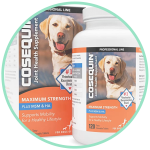


Cosequin for dogs is a scientifically formulated joint health supplement designed to support and sustain the well-being of your dog’s joints and cartilage.
It is highly recommended by veterinarians for older dogs due to its effectiveness in:
- Enhancing mobility
- Comfort
- & Overall quality of life.
It plays a crucial role in maintaining an active lifestyle for your dog, irrespective of its age, breed, or size. Easy to administer, Cosequin is crafted to be palatable, ensuring that your dog takes it without complaint. It can be used as preventative care for joint health issues, as well as a solution for existing ones.
Is Cosequin Good For Dogs



Yes! Cosequin is highly beneficial for dogs, playing a significant role in supporting and maintaining the health of their joints and cartilage. It’s an excellent choice for dogs of all ages, but particularly older dogs or those with existing joint issues. It aids in enhancing mobility and overall comfort, improving a dog’s quality of life.
Your vet will be able to determine is Cosequin good for dogs based on your pet’s weight, breed, and overall health.
What Does Cosequin for Dogs Do?
Cosequin primarily supports and maintains the health of your dog’s joints and cartilage. It enhances your dog’s mobility and comfort, particularly as they age or if they’re a breed that tends to suffer from joint issues early-on in life.
By delivering vital nutrients that the body uses to maintain joint integrity and function, Cosequin aids in the repair and prevention of cartilage breakdown. It ensures that your dog can continue to enjoy an active lifestyle by improving overall joint health.
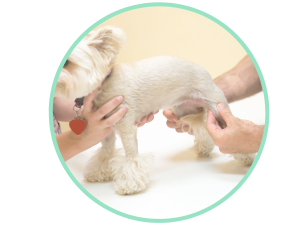


Cosequin essentially serves as both a preventive measure and a remedy to mitigate the discomfort and mobility issues associated with poor joint health in dogs.






How Does Cosequin for Dogs Work?
Cosequin works by supplying critical nutrients that support the health and function of your dog’s joints. It targets the cartilage—the flexible, connective tissue in joints that absorbs the pressure and shock created from movement and heavy loads.
The components of Cosequin help maintain the structure and flexibility of this cartilage, while simultaneously inhibiting the enzymes that contribute to its breakdown. In this way, Cosequin helps to prevent and repair cartilage deterioration, resulting in improved comfort and mobility for your dog.
It essentially acts as a line of defense against wear and tear, supporting the longevity of your dog’s active lifestyle.
What are the Cosequin Ingredients?
The Cosequin ingredients are a blend of key nutrients that work synergistically to promote canine joint health. Here’s what it contains:



- Glucosamine Hydrochloride – This natural compound helps in the formation and repair of cartilage, enhancing joint function and mobility.
- Sodium Chondroitin Sulfate – It inhibits harmful enzymes that break down cartilage and assists in nutrient absorption, promoting cartilage health and resilience.
- Methylsulfonylmethane (MSM) – An organic form of sulfur, MSM supports healthy connective tissues and joint comfort.
- Manganese – This trace mineral aids in the formation of cartilage and lubricating synovial fluid.
These Cosequin ingredients work together to provide comprehensive joint support, helping your dog maintain an active and healthy lifestyle.
What is the Correct Cosequin Dosage for Dogs?
The correct dosage of Cosequin for your dog largely depends on their weight and the specific Cosequin product you’re using. While it’s always best to consult your veterinarian or follow the specific guidelines on the product packaging, here’s a general guideline:
| Dog Weight | Cosequin DS | Cosequin DS Plus MSM | Cosequin Standard Strength |
|---|---|---|---|
| Under 10 lbs | 1/4 tablet daily | 1/2 tablet daily | 1/2 capsule daily |
| 10-24 lbs | 1/2 tablet daily | 1 tablet daily | 1 capsule daily |
| 25-49 lbs | 1 tablet daily initially, 1/2 tablet daily for maintenance | 2 tablets daily initially, 1 tablet daily for maintenance | 1-2 capsules daily initially, 1 capsule daily for maintenance |
| 50-100 lbs | 2 tablets daily initially, 1 tablet daily for maintenance | 3 tablets daily initially, 1-2 tablets daily for maintenance | 2 capsules daily initially, 1-2 capsules daily for maintenance |
| Over 100 lbs | 3 tablets daily initially, 1-2 tablets daily for maintenance | 4 tablets daily initially, 2 tablets daily for maintenance | Contact Vet |
Again, these are general guidelines and individual needs may vary, so it’s important to consult with a veterinarian.
How is Cosequin for Dogs Administered?
Administering Cosequin for dogs is straightforward and can be done in several ways, making it easier for both you and your pet. Here’s how:
- Direct Feeding – Cosequin often comes in chewable tablets or capsules that can be given directly to your dog. Many dogs enjoy the taste and see it as a treat.
- Mixed with Food – If your dog is hesitant to take Cosequin directly, you can mix it in with their food. If you’re using capsules, you can open them and sprinkle the contents onto the food.
- With Treats – Another way to administer Cosequin is to hide it in a treat or a piece of food your dog loves. There are even special products designed for this purpose, such as GREENIES pill pockets.
Remember to provide plenty of water when administering Cosequin for dogs. Also, it’s generally recommended to give Cosequin to your dog during or after their meal to reduce the chance of gastrointestinal upset.
What if I Miss a Dose of Cosequin?
If you accidentally miss a dose of Cosequin for dogs, administer the missed dose as soon as you remember. However, if it’s close to the time for the next dose, skip the missed dose and continue with your regular dosing schedule. Do not double up on doses to make up for the missed one.
It’s important to note that missing a dose occasionally is not likely to harm your pet or significantly impact the effectiveness of the supplement, but consistency is key for optimal results.



If your dog has any significant side effects due to missing a dose, you should consult your personal vet as soon as possible.
Does Cosequin for Dogs Require A Prescription?
No, Cosequin for dogs is an over-the-counter supplement and does not require a prescription. Even though it’s available without a prescription, it’s still a good idea to consult with your veterinarian before starting your dog on Cosequin or any new supplement.
Your vet can provide guidance on whether it’s suitable for your dog, what the appropriate dosage should be, and monitor its effectiveness over time. Always prioritize your pet’s health and seek professional advice when necessary.
What Alternatives Are There for Cosequin for Dogs?
There are several alternatives to Cosequin for dogs available in the market. These include both natural remedies and manufactured supplements, including:
- Dasuquin – Manufactured by the same company as Cosequin, Dasuquin is another joint supplement for dogs. It contains the same active ingredients as Cosequin, plus additional compounds believed to enhance joint health and function.
- GlycoFlex – This supplement also supports joint health in dogs and is available in different dosages, allowing you to choose the most appropriate strength for your dog’s needs.
- Joint MAX Double Strength – This is a powerful glucosamine-chondroitin supplement designed to target joint health and support joint lubrication and structure.
- Natural Remedies – Some pet owners prefer natural remedies like turmeric, omega-3 fatty acids, green-lipped mussel, and more. These can support joint health but should be discussed with a vet for proper dosage and potential interactions.
Dasuquin, particularly, is a great option to consider, given its enhanced formulation for joint health.
Dasuquin Vs Cosequin
When it comes to joint health supplements for dogs, Dasuquin vs Cosequin is a common question I get. These two popular options are both manufactured by Nutramax Laboratories. While they share key active ingredients like glucosamine and chondroitin, Dasuquin has an added component, ASU (avocado/soybean unsaponifiables), which is believed to provide additional joint health benefits.
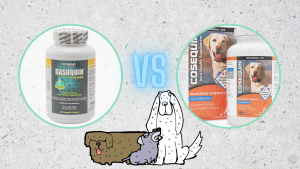


Dog owners might choose Cosequin if they’re looking for a basic, reliable, and cost-effective supplement to support their dog’s joint health. Dasuquin, on the other hand, might be the choice for those looking for a more advanced supplement, particularly if their dog has significant joint issues or if they’ve not seen the desired results with other supplements.
Here’s a comparative chart for a quick overview:
| Features | Cosequin | Dasuquin |
|---|---|---|
| Primary Ingredients | Glucosamine, Chondroitin | Glucosamine, Chondroitin, ASU |
| Joint Health Support | ✔️ | ✔️ |
| Additional Advanced Joint Support | ✔️ | |
| Cost | Less Expensive | More Expensive |
In the Dasuquin vs Cosequin debate, it really depends on the needs of your individual pet. If you’re still on the fence, it might be a good idea to talk to your vet to get up-to-date advice based on what they know about your pup.
When Will You See Results from Cosequin for Dogs?



The time frame for seeing results from Cosequin can vary from dog to dog, depending on factors such as the dog’s weight, age, the severity of their joint issues, and individual response to the supplement.
On average, pet owners might start to notice improvements in their dog’s mobility and activity level within 4 to 6 weeks of consistent daily use.
For some dogs, positive changes might be seen even sooner, while others may require a longer period before noticeable improvements occur.
Cosequin For Dogs Side Effects
While Cosequin is generally safe for dogs and well-tolerated, as with any supplement, there can be potential side effects. These are typically rare and mild, but it’s essential to be aware of them. They may include:



- Gastrointestinal upset – The most common side effect, this can include symptoms like diarrhea, vomiting, or changes in appetite. To reduce this risk, try giving Cosequin with a meal.
- Allergic reactions – Although rare, some dogs might have an allergic reaction to one of the ingredients in Cosequin. Signs of an allergic reaction can include itching, hives, difficulty breathing, or swelling of the face, lips, or tongue. If you observe these signs, discontinue use and contact your vet immediately.
- Changes in blood sugar levels – Glucosamine, one of the active ingredients in Cosequin, can potentially affect blood sugar levels. This is particularly important for diabetic dogs or those undergoing surgery.
- Changes in behavior or physical activity – In some cases, dogs may seem lethargic or less active after starting a new supplement. While this is uncommon, if you notice any significant changes in your dog’s behavior or energy levels, it’s worth discussing with your veterinarian.
Remember, if your dog shows any signs of distress or unusual behavior after starting Cosequin, it’s best to consult with your vet immediately.
Are There Any Risk Factors for Cosequin?
While Cosequin is generally safe for dogs, there are certain risk factors that may make it less suitable for some dogs. These include:
- Pre-existing Medical Conditions – Dogs with diabetes or blood clotting disorders should be monitored closely while taking Cosequin due to the presence of glucosamine, which can affect blood sugar levels and clotting times.
- Allergies – Dogs with known allergies to shellfish might react to glucosamine, which is often sourced from shellfish. Similarly, if a dog is allergic to any other ingredient in Cosequin, it may not be suitable for them.
- Pregnancy or Lactation – The safety of Cosequin in pregnant or lactating dogs has not been thoroughly studied. Therefore, it’s best to consult a vet before giving Cosequin to a dog who is pregnant or nursing.
- Concurrent Medications – Although not a common occurrence, there may be potential interactions with other medications your dog is taking. Therefore, it’s always wise to consult with your vet if your dog is on any other medication.
Before starting your dog on Cosequin, it’s a good idea to have a discussion with your vet, particularly if your dog falls into any of these risk categories.
Are There Any Drug Interactions with Cosequin?
Cosequin is a supplement made primarily of natural ingredients, and it’s generally considered safe with low risk of drug interactions. However, it’s important to note that one of its primary ingredients, glucosamine, could potentially interact with certain medications. Here are a couple of specific considerations:
- Blood Thinning Medications – Glucosamine could theoretically enhance the effects of blood-thinning medications, such as warfarin or heparin, due to its mild antiplatelet effects. If your dog is on any of these medications, you should discuss this with your vet.
- Diabetes Medications – While the evidence is not definitive, there’s some suggestion that glucosamine could affect blood sugar levels. For a dog with diabetes or a dog being treated with diabetes medications, this might require additional monitoring or adjustments in medication dosage.
Always consult your veterinarian before starting your dog on Cosequin or any new supplement, especially if your dog is currently taking other medications.
How to Store Cosequin for Dogs
Proper storage of Cosequin is important to maintain its effectiveness. Here are some guidelines to follow:
- Store in Cool and Dry Place – Store Cosequin in a cool, dry place. Avoid locations with high humidity, like the bathroom, or areas with significant temperature fluctuations, like near a stove or refrigerator.
- Keep Original Packaging – Keep Cosequin in its original packaging. The containers are designed to protect the product from moisture and light, which can degrade the supplement over time.
- Avoid Direct Sunlight – Prolonged exposure to sunlight can deteriorate the quality of Cosequin. Hence, keep it in a dark place or a closed cabinet.
- Keep Out of Reach of Pets – Ensure that the product is kept out of reach of your pets to prevent them from accidentally consuming too much.
- Check Expiry Date – Like any supplement, Cosequin has an expiration date. Always check the date before administering the supplement to your dog. Expired products may lose their potency and should not be used.
Following these guidelines will help ensure that your dog’s Cosequin stays effective and safe to use.
Is Cosequin Safe For Dogs?
Yes, Cosequin is generally safe for dogs when administered correctly and under the guidance of a veterinarian. It’s a well-tolerated, over-the-counter supplement that’s designed to support joint health in dogs. The active ingredients – glucosamine and chondroitin – are naturally occurring substances that are crucial for maintaining healthy cartilage and joints.



What are the Cosequin Reviews Online Saying?
There are generally pretty good online reviews for companies that specialize in Cosequin for dogs. The reviews that I’ve seen that aren’t great are usually due to miss-use of the product in one way or another.
Let’s take a look at some of the reviews found Amazon and around the web to get a sampling of what you can expect from Cosequin for dogs:
Remember, if you’re using Cosequin for dogs, it’s a good idea to give it at least 4-6 weeks to take effect. Following proper dosages based on your animal’s weight and breed is essential if you want to get the best results possible for your furry friend.
Where Can You Buy Cosequin for Dogs?
Because there is no prescription necessary, I tend to recommend that you source Cosequin directly from Amazon. It might have a slightly higher price tag but you’re more likely to get a product that’s at maximum potency, purity, and freshness. You’ll also often get discounts on bulk purchases, and free shipping when you add it to your regular Amazon order.
You can also purchase Cosequin for dogs at many in-person pet supply stores. Call ahead before you make the trip though.






A Vet’s Final Thoughts on Cosequin for Dogs



We regularly get questions on certain medications that can be used for pets. Cosequin for dogs is no different. It’s a good choice for anyone looking to supplement their dog’s diet with joint-healthy nutrients. In fact, I often recommend Cosequin for dogs as preventative care for dog breeds that are susceptible to joint issues.
I hope this article on Cosequin for dogs was helpful! If you have any questions about Cosequin or any other medications for dogs, feel free to leave a comment below. Just remember, in case of emergency, seek immediate medical advice from your personal vet.
Related posts:
Natasha Moore is a professional SEO content writer and owner of Word Brokers, LLC. She enjoys traveling, hanging out with pups of all sorts, and reading the biggest books she can find. She’s also a full-time digital nomad, and you can find her writing content from the beach in Mexico, a corner coffee shop in Colombia, or lounging by the lake in Guatemala.

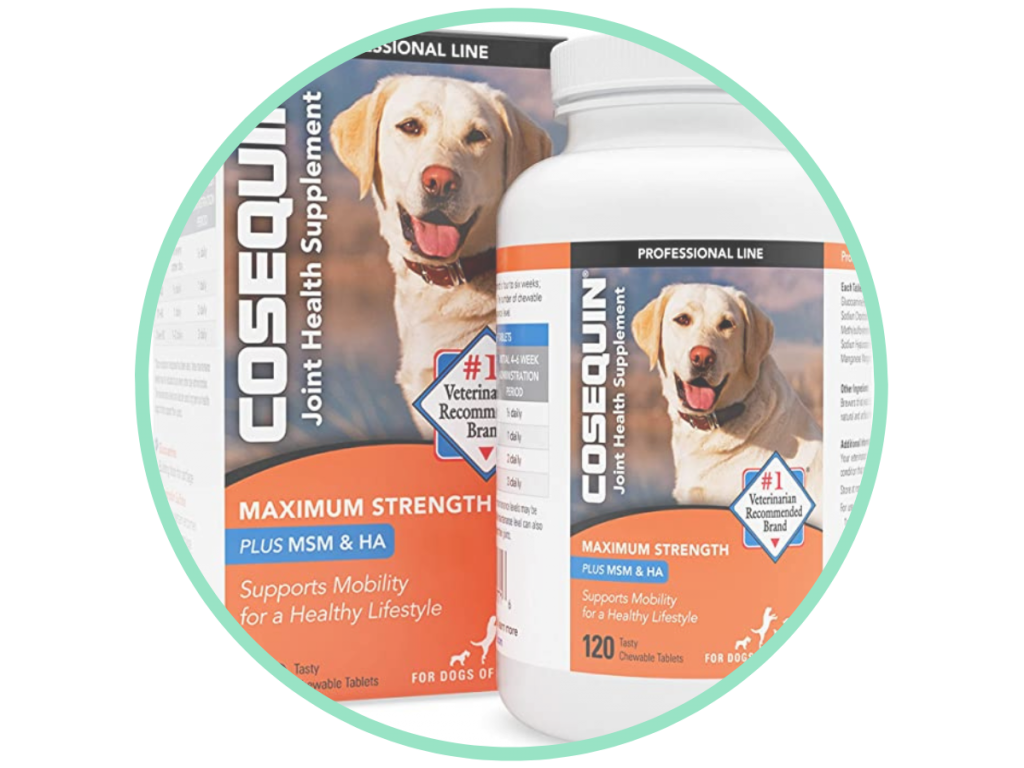
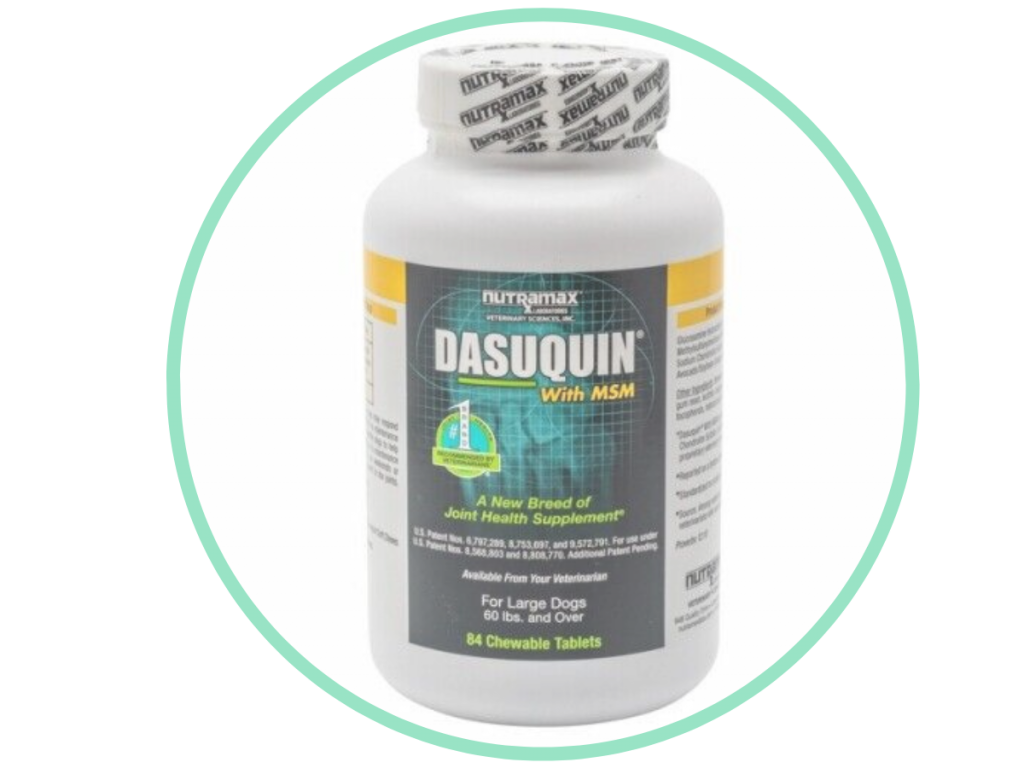
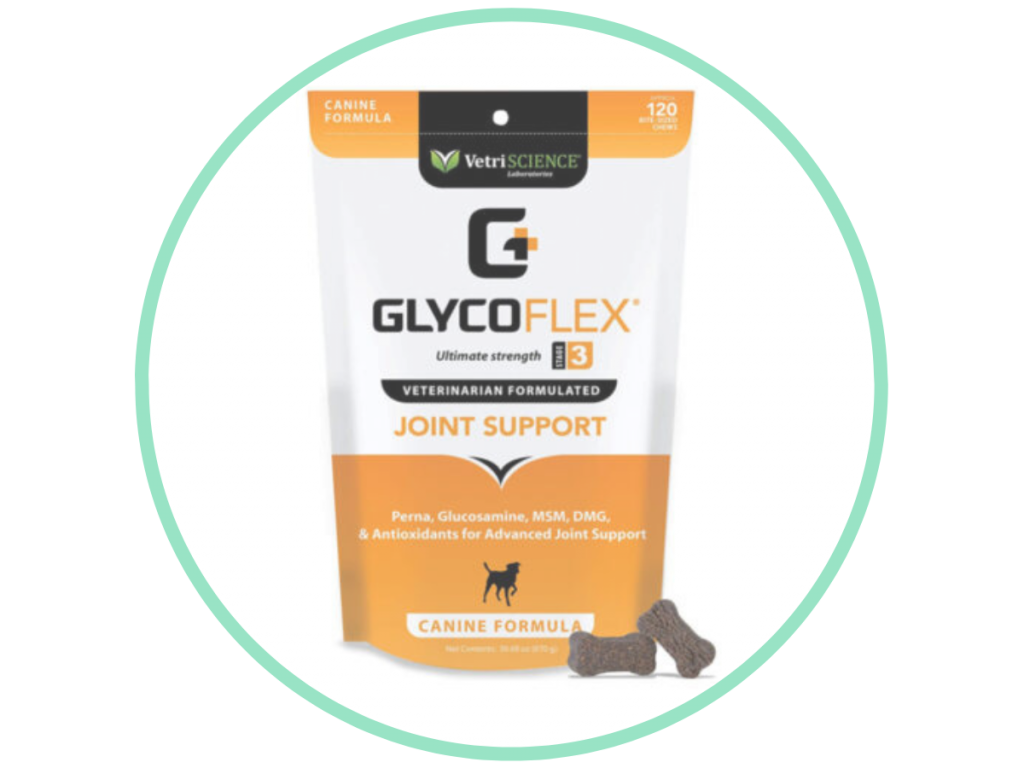
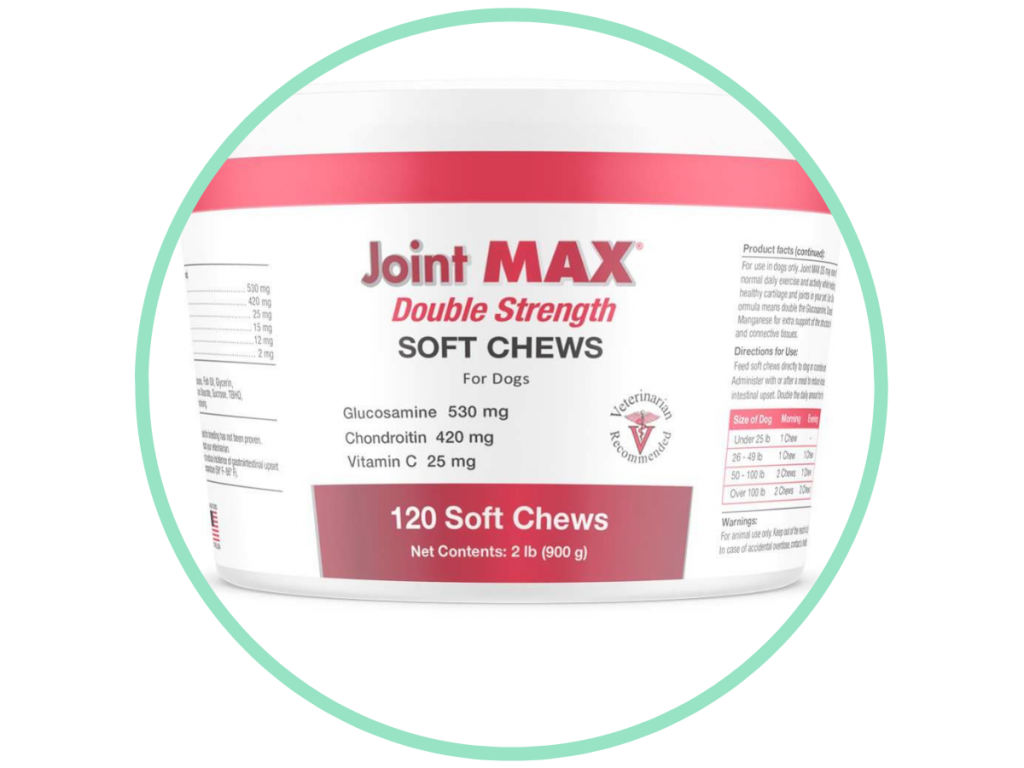


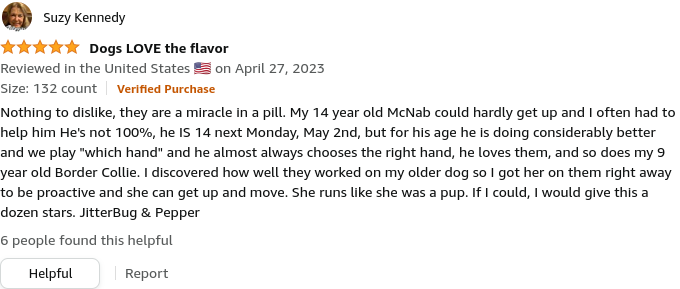
2 Comments